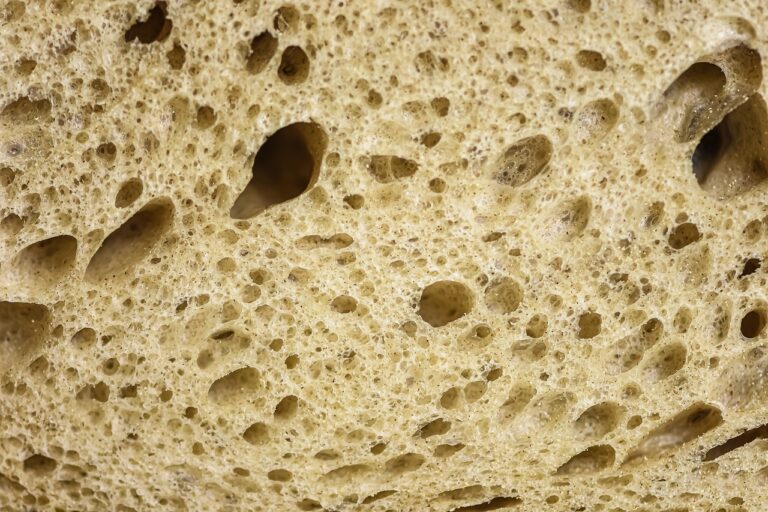The Potential of Watermelon Seed Protein in Protein Bar Formulations: 11xplay reddy login id and password, King567 signup, Skyinplay exchange
11xplay reddy login id and password, king567 signup, skyinplay exchange: Watermelon seed protein is a lesser-known but highly nutritious plant-based protein source that has been gaining popularity in recent years. With the rise of plant-based diets and the demand for sustainable protein options, watermelon seed protein has emerged as a promising ingredient in various food formulations, including protein bars.
Protein bars are a convenient and popular snack option for individuals looking to boost their protein intake on the go. They are often used as a quick and easy way to fuel workouts, satisfy hunger between meals, or simply enjoy a tasty, nutritious snack. While most protein bars are made with animal-based proteins such as whey or casein, there is a growing trend towards plant-based protein sources like pea, soy, and rice protein.
Watermelon seed protein is an excellent plant-based protein option that offers many benefits for formulating protein bars. It is a complete protein, meaning it contains all nine essential amino acids that the body cannot produce on its own. This makes it a valuable protein source for supporting muscle growth, repair, and overall health.
In addition to its impressive amino acid profile, watermelon seed protein is also rich in nutrients such as vitamins, minerals, and antioxidants. It is a good source of magnesium, potassium, iron, and zinc, which are essential for various bodily functions and overall well-being. The antioxidants found in watermelon seed protein can help protect against oxidative stress and inflammation, and support immune function.
When used in protein bar formulations, watermelon seed protein offers a unique flavor profile that sets it apart from other plant-based proteins. It has a mild, nutty taste that pairs well with a variety of flavors and ingredients, making it a versatile option for creating delicious and satisfying protein bars. Its smooth texture also helps to create a soft and chewy bar that is easy to eat and digest.
One of the key advantages of using watermelon seed protein in protein bars is its high digestibility. Unlike some other plant-based proteins that can be difficult for the body to break down and absorb, watermelon seed protein is easily digestible and well-tolerated by most individuals. This makes it a great option for those with digestive sensitivities or dietary restrictions.
In addition to its nutritional benefits and palatable qualities, watermelon seed protein is also a sustainable protein source. Watermelon seeds are a byproduct of the fruit industry and are often discarded as waste. By utilizing watermelon seeds to extract protein, food manufacturers can help reduce food waste and promote a more sustainable food system.
Overall, the potential of watermelon seed protein in protein bar formulations is vast. Its nutritional profile, digestibility, flavor, and sustainability make it an attractive option for consumers looking for plant-based protein alternatives. As the demand for plant-based protein products continues to grow, watermelon seed protein is poised to play a significant role in the protein bar market.
If you’re interested in trying protein bars made with watermelon seed protein, keep an eye out for new product launches from innovative food brands. Alternatively, you can also experiment with making your own protein bars at home using watermelon seed protein powder or whole watermelon seeds. With a little creativity and experimentation, you can create delicious and nutritious protein bars that harness the potential of watermelon seed protein.
FAQs:
Q: Is watermelon seed protein suitable for individuals with allergies?
A: Watermelon seed protein is considered to be hypoallergenic and is generally well-tolerated by individuals with food allergies. However, it’s always best to consult with a healthcare provider before trying a new protein source, especially if you have a known food allergy.
Q: How can I incorporate watermelon seed protein into my diet?
A: Watermelon seed protein can be added to smoothies, oatmeal, yogurt, baked goods, and of course, protein bars. Look for protein powders made from watermelon seeds or whole watermelon seeds that can be ground into a powder for easy use.
Q: Are there any potential side effects of consuming watermelon seed protein?
A: In general, watermelon seed protein is safe for consumption and does not have any known side effects. However, as with any new food or supplement, it’s important to start with a small amount and monitor your body’s response. If you experience any adverse reactions, discontinue use and consult with a healthcare provider.
Q: Where can I purchase watermelon seed protein products?
A: Watermelon seed protein products can be found at natural health food stores, online retailers, and specialty food shops. Look for reputable brands that source their watermelon seeds from organic, non-GMO sources for the highest quality protein products.







